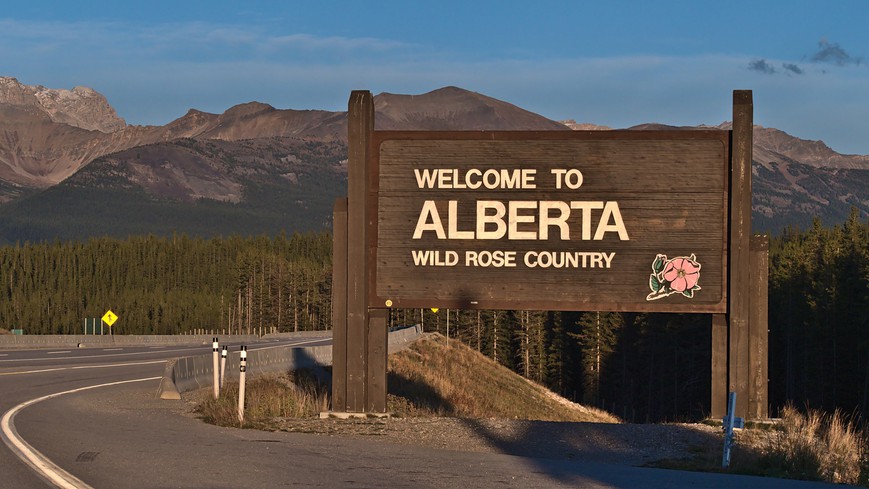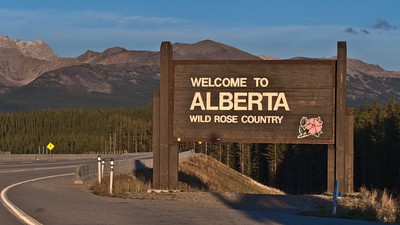

- Alberta plans to remodel its igaming structure, a move that has attracted six igaming companies, including Bally’s Corporation.
- The province may share liquidity with Ontario or on the international marketplace, following recent legislation.
- Operators such as BetMGM and PokerStars have already hired lobbying firms in Alberta.
- BetRivers Poker and 888poker are also said to be interested in launching in Alberta.
The news that Bally’s Corporation has joined five other igaming companies in deciding to hire lobbyists in Alberta, as the province embarks on switching to a regulated market that resembles Ontario’s, raises a question — if Alberta does create such a regulated space for online poker, which operators would want to launch there?
All of them — and there is ample evidence in support.
To clarify, “all” of the operators in question refers to the six operators that are currently deployed in Ontario, plus a seventh platform that could be released before the end of the year. It includes all real money online poker operators deployed in the US and Canada.
Those first six operators are 888poker, BetMGM Poker, GGPoker, and PokerStars, plus Entain brands Bwin Poker and PartyPoker (Entain also owns half of BetMGM, with MGM Resorts International owning the other half). Meanwhile, the aforementioned seventh platform is BetRivers Poker, which is still in development by Rush Street International (RSI).
In short, Wild Rose Country, as Alberta is often called, appears on the precipice of becoming the next regulated market for online poker, judging by the level of interest that gaming companies have shown so far. But there are several reasons why operators have shown an interest in the province.
Why Operators Are Interested in Alberta
With about 4.8 million residents, Alberta online poker will not be a big market. It ranks as Canada’s fourth-most populous province, after Ontario, Québec, and British Columbia. It would be the 25th most populous state if it were part of the US, just ahead of Louisiana.
That said, a market of 4.8 million people is nothing to sneeze at. Moreover, consider that in the US there are five regulated markets for online poker that are much smaller than Alberta — Connecticut, Delaware, Nevada, Rhode Island, and West Virginia all have fewer people (Note: All of those states except Nevada have no poker operators currently, but for different reasons).
Alberta lawmakers recently passed legislation that would allow the province to conduct igaming “either alone or in conjunction with the government of another province or territory,” which strongly suggests that Alberta aims to share liquidity with Ontario or on the international marketplace.
An agreement to share liquidity with Ontario would create a combined market of 20.6 million people. By comparison, the two largest members of the Multi-State Internet Gaming Agreement (MSIGA), a multi-state gaming compact in the US, has 19.3 million residents.
Meanwhile, as Ontario AG Doug Downey prepares to argue before the Court of Appeal for Ontario this November that the federal Criminal Code doesn’t prohibit international liquidity, Alberta will be watching. A favorable ruling could lead to both provinces sharing liquidity on the global stage.
There are other factors:
- The government of Premier Danielle Smith backs the changes
- Citizens have high levels of disposable income
- Alberta has a low corporate tax rate (8%)
- PlayAlberta, the official provincial site for igaming, doesn’t offer peer-to-peer poker and would not be a competitor
For its part, Canada has nothing like MSIGA, which currently includes Delaware, Michigan, Nevada, New Jersey, and West Virginia.
If the Court of Appeal for Ontario rules against international liquidity, Alberta and Ontario could form a gaming compact between themselves to support online poker. There is already such a partnership between poker sites on the Canada Poker Network — a network of provincial lottery-licensed online poker rooms in British Columbia, Québec, and Manitoba.
What Operators Have Done So Far
Bally’s taking an interest in Alberta speaks to the province’s appeal to igaming companies in general. But since Bally’s doesn’t have a poker platform, its interest in Alberta is inconsequential.
It’s an entirely different story with BetMGM and PokerStars. The Alberta Lobbyist Registry shows both operators hired lobbying firms in the province months ago.
PokerStars’ parent, The Stars Group (TSG), hired two firms to help familiarize provincial officials with its operations in other jurisdictions “in terms of player protection measures, responsible gaming practices, enhanced consumer entertainment, and incremental government revenue opportunities.”
Two separate firms hired by BetMGM aim to “[engage] in discussions [with Alberta] in order to provide information on international best practices in the regulation of internet gaming.”
BetMGM Poker isn’t the only possible market entrant. Consider that in Ontario it shares liquidity with two Entain brands — Bwin Poker and PartyPoker.
Since Entain is picking up the tab, in part, for advisors to help shepherd BetMGM Poker through a potentially regulatory process in Alberta, the UK gaming giant (which owns 50% of BetMGM) may figure it makes sense to launch Bwin Poker and PartyPoker in the province, too.
BetMGM has applauded Smith for supporting “online sports betting legislation reform, recommending opening the province to third-party players like BetMGM.” The premier’s backing marked “a promising moment for Alberta’s sports bettors and online sports betting operators.”
On a related front, GGPoker has been urging Ontario regulators to reverse course and allow poker operators to rejoin international online poker. But it should be noted that GGPoker, which currently operates in Alberta’s gray market through a global license, does not support gaming compacts like MSIGA — rather, the operator supports global liquidity across all markets, with players capable of competing against others from any country in the world.
GGPoker has also given no indication that it isn’t interested in extending its partnership with WSOP beyond Ontario.
PokerStars also operates in Alberta’s gray market through a global license. Both GGPoker and PokerStars could have an edge if regulated real money online poker launches in Wild Country — the two operators will already enjoy a degree of brand awareness among Albertans.
888poker and BetRivers Poker Interested, Too
Evoke, formerly 888 Holdings, conducted a strategic review of its assets earlier this year and concluded by late March that it could do without its B2C operations in the US. The UK-based company sold them to Hard Rock Digital (HRD), the gaming company of the Seminole Tribe, for an undisclosed sum.
Despite its exit from the US — 888poker NJ was scheduled to cease operations on Monday — Evoke decided to keep its assets in Canada, and is reportedly making plans to launch 888poker in Alberta and Québec. That’s according to Roi Nadler, Head of Canada for Evoke.
“We are proponents of good regulation that benefits consumers and operators and we look forward to Canada’s other provinces and territories potentially following Ontario’s lead,” Nadler told CDC Gaming Reports in an interview in April “If that means we get to enjoy the [Calgary] Stampede in July or Mount Royal Park in August, even better!”
Last but not least is RSI, which will likely aim to launch BetRivers Poker in Alberta. Earnings calls can be dull affairs, but RSI’s call for Q4 2023 back on March 6 was exciting, if for no other reason that CEO Richard Schwartz name-dropped Alberta during the call — twice — during a discussion on possible future markets.
“Some of the states that we are watching include New York, Maryland, Illinois, as well as provinces in Canada, most notably Alberta,” Schwartz said. “As we look ahead, these [markets]…have us very excited about the future.”

